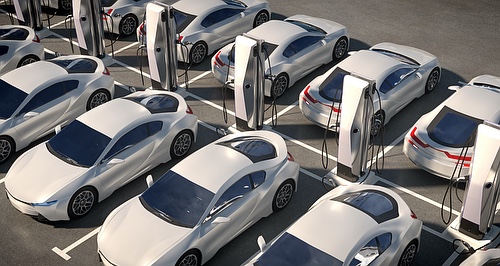News - General News - Electric VehiclesSurveys show EV interest declining in USEdmunds, JD Power surveys show growing disinterest in EV consideration among US car buyers10 Apr 2024 By MATT BROGAN THE number of American new car buyers likely to consider an electric vehicle as their next car is shrinking according to the results of two surveys carried out by Edmunds and JD Power.
The surveys indicate that despite the dozens of new electric vehicle models entering the market, buyers in the United States are less likely to consider an EV than before, with almost a quarter (23 per cent) of Edmunds respondents saying they “dislike” the technology.
Automotive research firm JD Power found similar results in its own survey, with the percentage of consumers who said they are very likely to consider an EV for their next car falling for the fourth consecutive month.
JD Power says just 24 per cent of respondents would consider buying an electric vehicle, while those who said they would not rose to more than 22 per cent.
According to Cox Automotive, the sentiment underlies dealer struggles across the United States. On average, dealers currently have 114 days’ supply of electric vehicles of their lots.
Head of automotive insights at Edmunds, Jessica Caldwell, says the reasons behind the reluctance to purchase an EV are varied, but include price, charging difficulties, and a lack of models from trusted automotive brands.
Of the brands viewed as trustworthy, Ms Caldwell said BMW, Ford, General Motors, Honda, Tesla, and Toyota faired best.
Despite the downturn in consumer sentiment, new EV registrations are continuing to increase, albeit at a far slower rate.
Registrations of electric vehicles rose 15 per cent in January, a significantly smaller gain when compared with the 52 per cent growth figure posted for the 2023 calendar year. In all, EVs made up around eight per cent of all US light vehicle registrations in January compared with seven per cent a year earlier.
JD Power survey respondents said limited public charging infrastructure was one of the key reasons behind the lack of support for electric vehicles.
Survey respondents also said the time required to charge an EV, limited driving range, electricity grid concerns, and the inability to charge at their home or office were chief concerns, as was the inability to charge their vehicle during a power outage.
Nearly a quarter of EV rejectors also cited inadequate vehicle performance in extreme temperatures as a reason to avoid the switch from petrol or diesel power.
Edmunds’ respondents said price was another factor in delaying an EV purchase. Almost half of those surveyed said they want an EV priced under $US40,000 ($A60,840) while 20 per cent said they wanted a model priced from under $US30,000 ($A45,630).
There are currently no new EVs available in the US market from less than $US30,000 and just four from less than $US40,000.
“Most EVs are beyond (buyers’) desired price range,” said Ms Caldwell. “Many of the youngest consumers are the most interested in EVs, but they are unlikely to afford one.”
Around 90 per cent of 18- to 24-year-olds surveyed said they are open to the idea of buying an EV as their next new car, while 83 per cent of 25- to 34-year-olds said they are interested in buying an EV.
With Automotive News  Read more5th of April 2024  Stellantis CEO questions EV mobility fixOne-size-fits-all approach not the solution to mobility, EVs will not work in every market: Tavares4th of April 2024  NVES changes may see Kia fast track EV uteElectric ute plans may change as NVES details firm, but Kia says more homework is needed2nd of April 2024  Elroq, Epiq BEVs on Skoda Australia wishlistSkoda Australia has high hopes of securing two smaller, more affordable electric SUVs29th of March 2024  Volvo ends diesel engine productionSwedish car maker farewells compression ignition engine, last vehicle headed to museum |
Click to shareGeneral News articlesResearch General News Motor industry news |
















Facebook Twitter Instagram